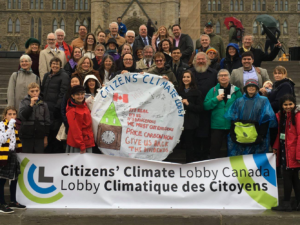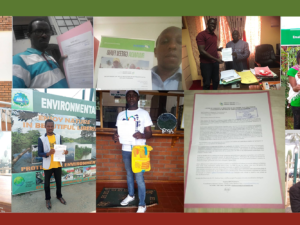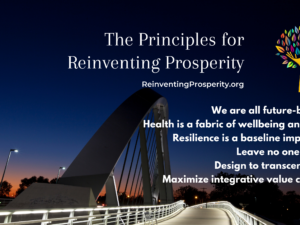
The climate crisis is rapidly intensifying. The costs of climate impacts are adding up, much faster than reserve financial holdings are prepared to withstand. It is estimated unchecked climate change will cost $178 trillion in losses and opportunity costs over the next five decades.
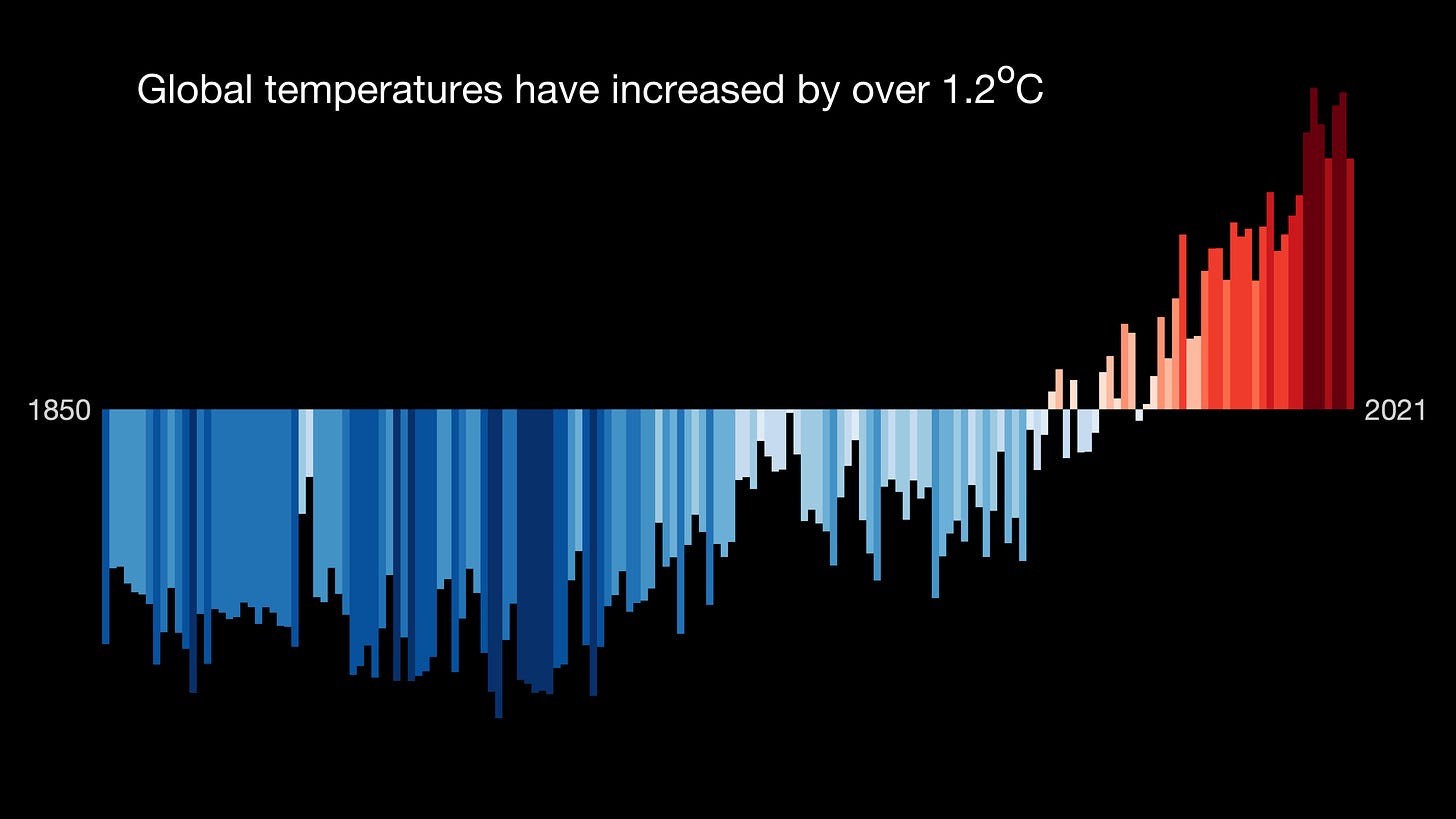
Global heating is happening fast; our window of opportunity for preventing irreversible climate breakdown and achieving climate resilient development is rapidly closing. Source: Show Your Stripes.
In June, while the world debated how to respond to loss and damage from human-caused climate change, the United States was struck by six natural disasters in one day. The financial, insurance, and emergency response measures we have now are not adequate for any country to fully overcome the escalating cost and risk of climate emergency.
On World Meteorological Day, in March, United Nations Secretary-General Antonio Guterres announced:
“Early warnings and action save lives. To that end, today I announce the United Nations will spearhead new action to ensure every person on Earth is protected by early warning systems within five years.”
This is a life-and-death project. All nations should cooperate in the effort to make sure everyone is covered by early warning systems. Early warning is just one piece of the puzzle, however. We also need to ensure climate crisis response is adequate to the threat posed by climate breakdown.
In some parts of the world, we are already seeing deep and lasting degradation of watersheds, ecosystems, and biodiversity, all of which contribute to the depletion of agricultural productive capacity. If we don’t rapidly adjust course, innovate, and scale—across the food, energy, and finance sectors—we may be entering a period of prolonged global food insecurity.
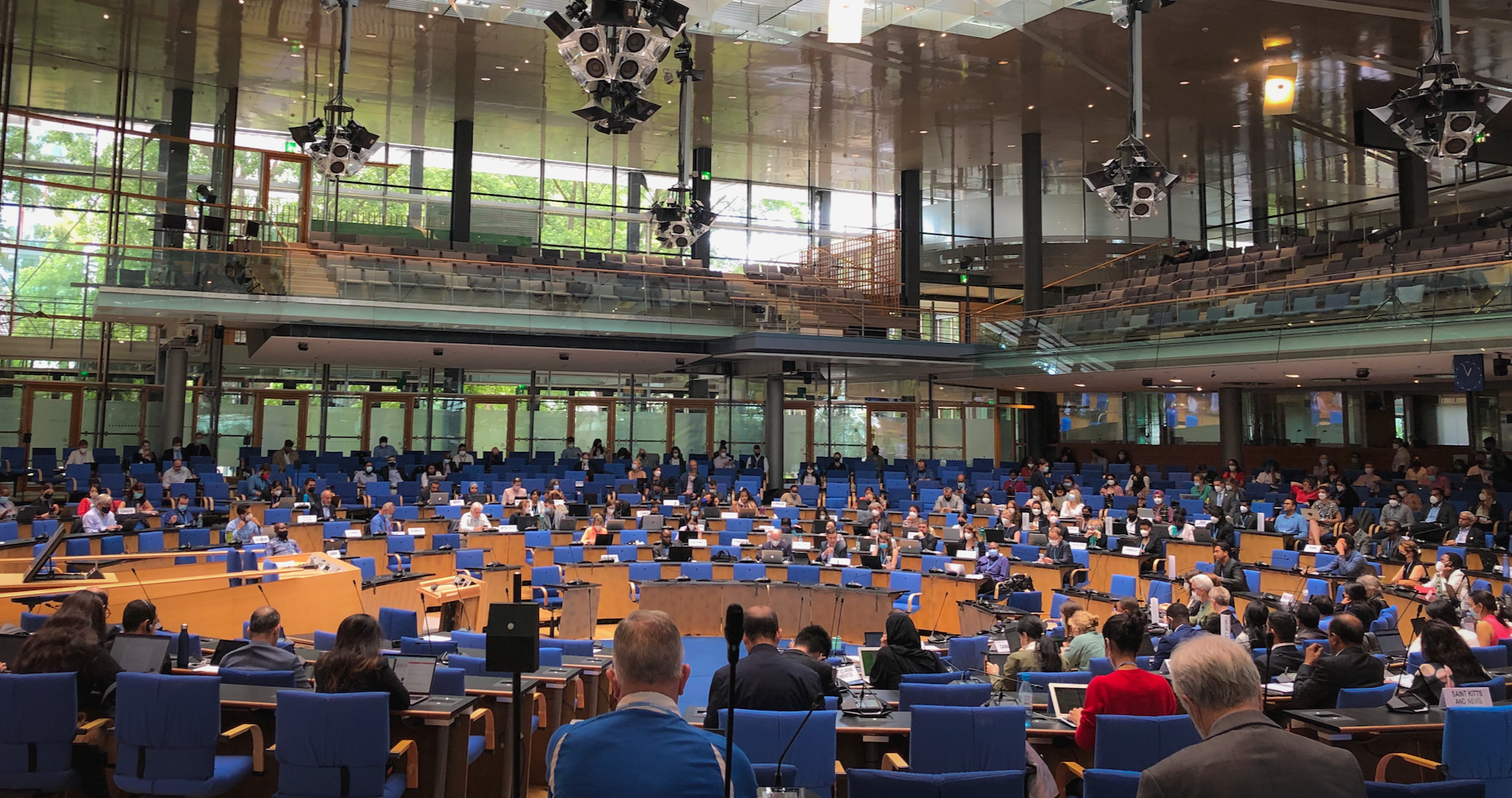
196 nations meet in Bonn, in June 2022, to discuss possible approaches to addressing and paying for loss and damage from human-caused climate change. Image credit: Joseph Robertson.
The debate around loss and damage often misses the fact that communities, countries, and regions affected by slow-moving or shock climate impacts need support to overcome those impacts. Loss and damage finance should provide that leverage for overcoming loss and damage, so affected countries and communities can rise above the baseline of resilience and build a climate-safe future.
While we cannot legislate the end of natural disasters, we can recognize climate safety as a human right, and an organizing principle for multilateral cooperation, finance, and trade. Climate safety means no person and no ecosystem is harmed by human-caused climate disruption. There are two primary ways to meet this standard:
- End human-caused climate disruption;
- Ensure every person and every ecosystem can benefit from prevention, response, and restoration initiatives.
Since we are deep into dangerous climate disruption, and rapidly heading toward a breach of the 1.5ºC global heating threshold, climate safety means focusing on the prevention, response, and restoration standard. The IPCC reports 3.6 billion people are now or will soon be facing ongoing acute climate vulnerability. Leaving billions of people to face such risk without assistance is not only immoral; it will result in the rapid accumulation of response and restoration costs.
A future in which climate safety and security are possible will require:
- Active prevention of climate damage, with aggressive transitions of food, energy, and financial systems;
- Early warning systems covering all people and all geographies;
- Robust immediate and sustained crisis response measures, to minimize harm to people and nature;
- Funding and cooperative mechanisms for restoration, to ensure people and ecosystems overcome the shock of climate impacts.
The start of work on cooperative “non-market approaches” in Bonn, last month, holds promise to facilitate the delivery of resources to all of these aims. NMA cooperative efforts could include:
- Standards and regulations, Climate income policies, Carbon-related border adjustments, and ‘Floor price’ measures;
- Accounting and avoidance of emissions and of damage to ecosystems, Nature finance, Fiscal rescue funding, ‘Labeling’ and tracking of aims and impacts;
- Food systems innovation measures, Data integration, Transition assistance, and Multilateral coherence in policy and practice.
The synthesis report considered by the In-session Workshop on Non-Market Approaches, and by the Glasgow Committee on Non-Market Approaches, during the Bonn meetings, includes a longer list of NMA categories and active examples. These include efforts to enhance fiscal stability, support investments in nature-based solutions, and upgrade the ambition of NDCs (national climate action plans).
If we look just at food security, we can see:
- Short-term emergency measures must align with long-term resilience of food systems.
- That means they must support a healthy natural background of ecological support for sustainable food production.
- If not, we will see ongoing erosion of productive capacity and a proliferation of hunger and destabilization.
- Non-market cooperative approaches provide tools nations can use now, to build climate-smart food security.
For the upcoming Economic Freedoms Report and the 2022 Reinventing Prosperity Report, Resilience Intel will look for progress on climate safety. We need early warning for all; we need robust immediate and sustained crisis response, when shock impacts occur, and we need support for actively overcoming loss and damage going forward.
All actors in the food, energy, and finance sectors should be looking to take on their piece of this great global challenge.
This article was first published on July 9, 2022, at ResilienceIntel.org



